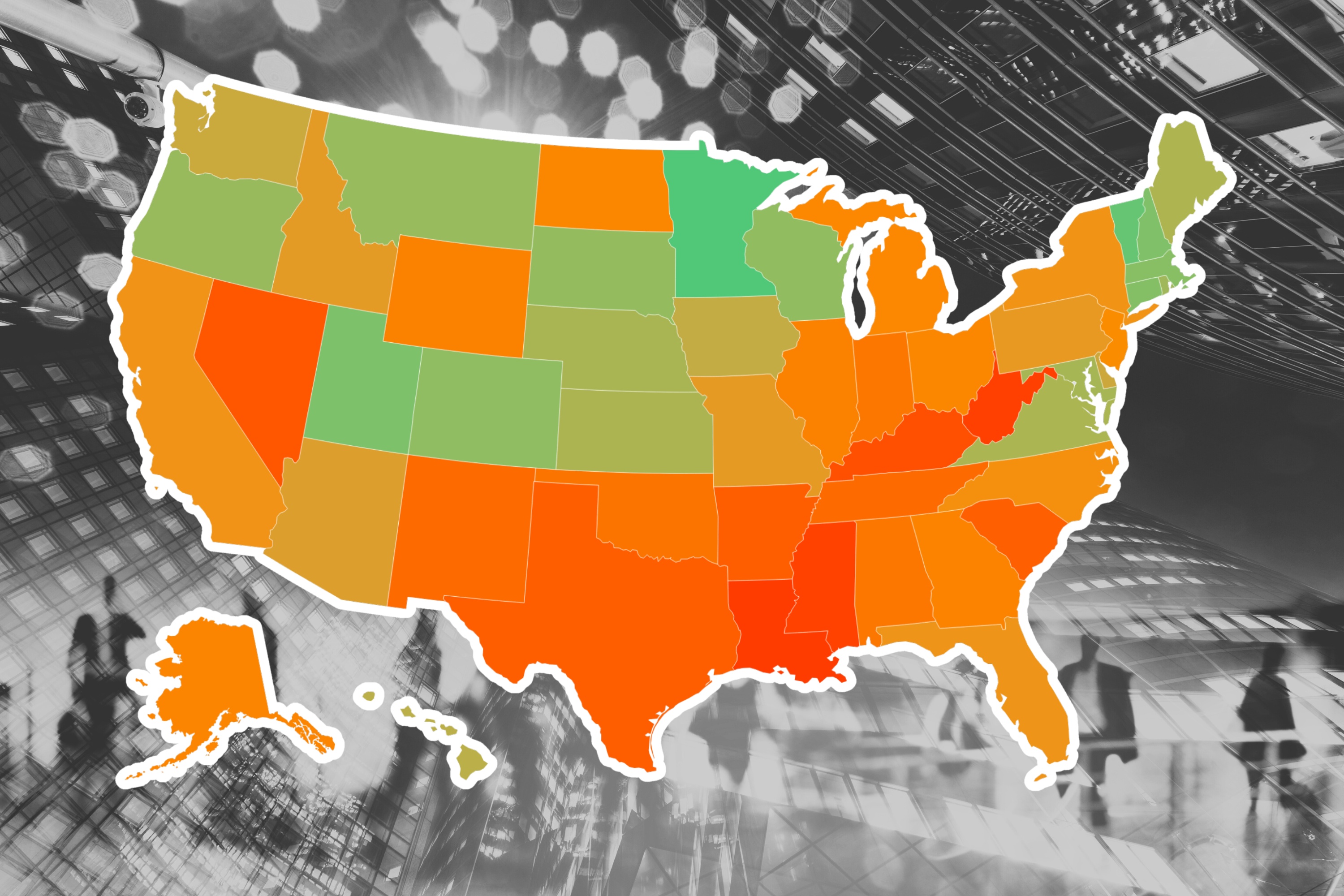A recent Gallup poll reveals that the United States has one of the highest stress levels in the world. In fact, over a quarter of American adults describe themselves as overwhelmed by stress on most days. The American Psychological Association reported that a staggering 77 percent of U.S. workers experienced work-related stress in the past month.
But stress isn’t the same everywhere in the country. So, which states have the most stressful workplaces?
An analysis by the personal injury attorneys at Premier Law Group examined data from the U.S. Bureau of Labor Statistics and the Census Bureau to find out which states provide the best and worst work conditions concerning employee stress.
This comprehensive analysis factored in elements like average hourly earnings, work hours, injury rates, unemployment, commute times, and the availability of remote working options to calculate an overall “stress score” out of 100.
Chronic stress can take a significant toll on both physical and mental health, leading to conditions like anxiety, depression, and cardiovascular issues, as well as affecting workplace productivity.
Here are the top 10 most stressful states for workers:
- Louisiana
- West Virginia
- Mississippi
- Kentucky
- Nevada
- Arkansas
- Texas
- South Carolina
- New Mexico
- Tennessee
Louisiana tops the list with the longest average workweek at 36.5 hours. Workers earn an average of $28.98 per hour (about 14.3% below the national average), and only a scant 6.2% have remote work options. Commuters face an average 26-minute travel time, and the unemployment rate sits at 3.9%. Louisiana also has a high rate of fatal workplace injuries at 6.4 per 100,000 workers, which is significantly above the national average.
Conversely, the states with the least stressed workers include:
- Minnesota
- Vermont
- Utah
- New Hampshire
- Connecticut
- Massachusetts
- Colorado
- Wisconsin
- South Dakota
- Montana
Ranked as the least stressful state, Minnesota boasts an average workweek of just 33 hours, with hourly wages at $37.51, which is 13.1% higher than the national average. Moreover, 13.6% of its workforce can work remotely, and its unemployment rates are nearly half those of Louisiana, while workplace injury rates are impressively low at 2.8 per 100,000 workers.
A noticeable trend is that 8 of the 10 most stressful states lean Republican, while 7 of the least stressful states are Democratic.
Experts from Premier Law Group commented on these findings: “Stress has become a familiar presence in workplaces. Long hours and low pay are putting immense pressure on employees. Stressed workers are more likely to disengage, make mistakes, and experience burnout.”
They emphasized the need for companies to foster a healthier work culture through open communication and prioritizing mental well-being, asserting that a balanced work-life is essential, not just a luxury.
